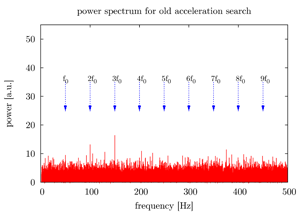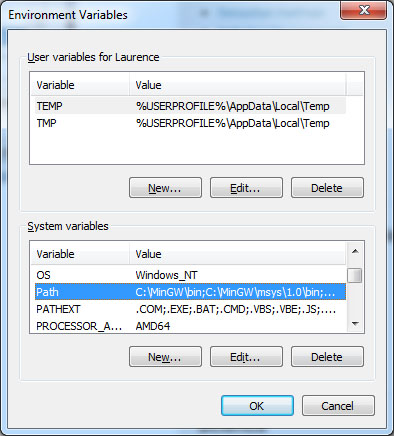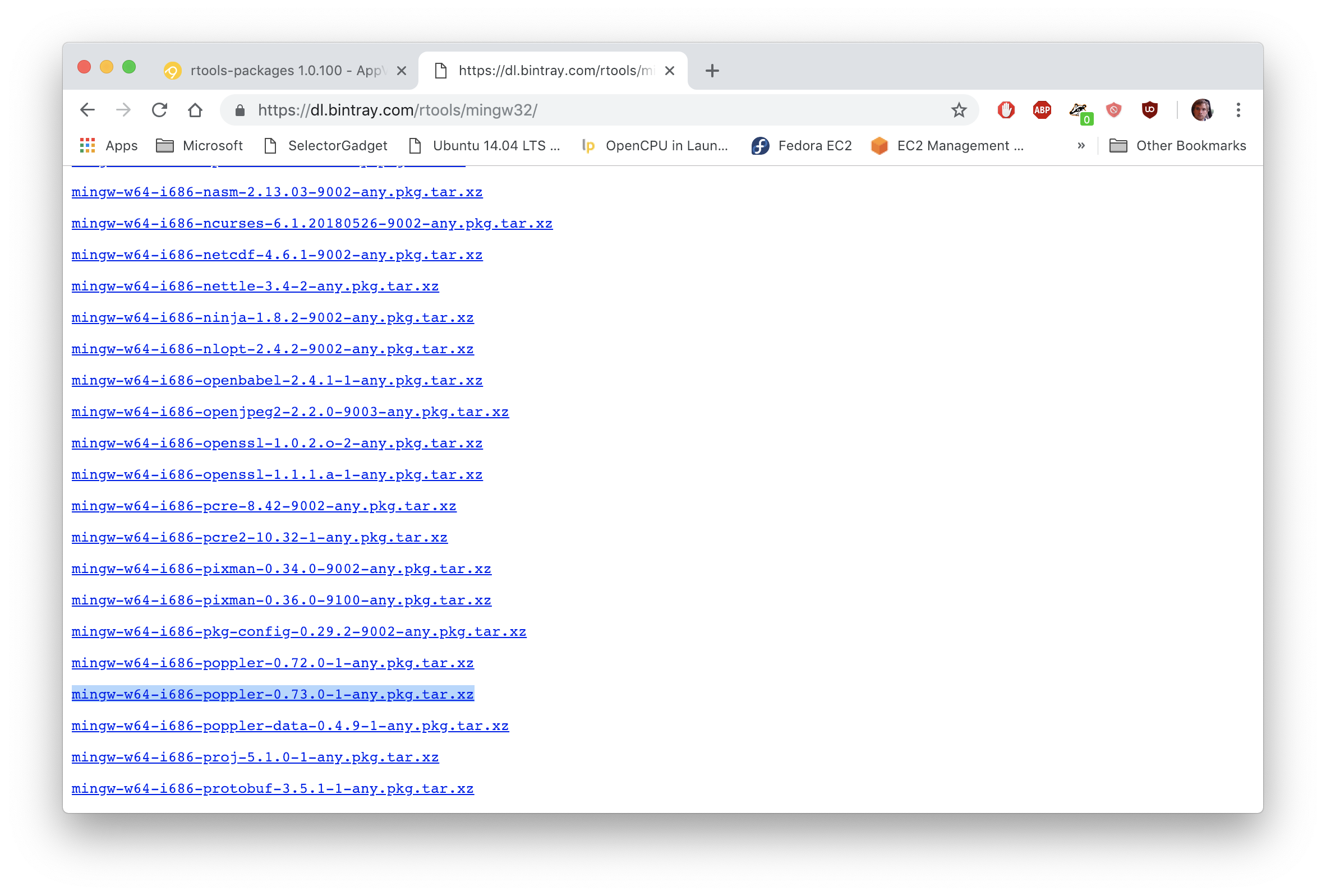Mac OS X: SDL2-2.0.12.dmg. Linux: Please contact your distribution maintainer for updates. Development Libraries: Windows: SDL2-devel-2.0.12-VC.zip (Visual C 32/64-bit) SDL2-devel-2.0.12-mingw.tar.gz (MinGW 32/64-bit) Mac OS X: SDL2-2.0.12.dmg.

- NOTE: The codeblocks-20.03mingw-setup.exe file includes additionally the GCC/G/GFortran compiler and GDB debugger from MinGW-W64 project (version 8.1.0, 32/64 bit, SEH). NOTE: The codeblocks-20.03(mingw)-nosetup.zip files are provided for convenience to users that are allergic against installers.
- Unknown platform - Citra is only supported on 64-bit versions of Windows, macOS, Linux, and Android 8 (Oreo) or above. If you are running one of these, choose one of the options below.
Automated Installer
If you are new to MinGW, see the MinGW Getting Started instructions to use the automated GUI or manual CLI (Command Line Interface) installers. Video download software for mac. What follows below are instructions for a very 'manual' download, typically only attempted by more experienced users.
Manual Installation
Before you start this manual installation, read the release notes (at the bottom of the page).
- Determine which files below you need and download them.
- Extract the files into a directory such as C:MinGW
- Add C:MinGWbin; to the PATH environment variable.
You will need a program that can extract .tar.lzma files, such as 7-Zip or one that provides command-line tar and lzma tools. Memory stick drive increaser upto 4gb software cnet. A basic standalone tar program that includes lzma support is available from the MinGW project and is called bsdtar.
You must add C:MinGWbin; to your user PATH environment variable manually. You can permanently add C:MinGWbin; to your PATH by following the instructions in the 'Environment Settings' section on the MinGW Getting Started page.
The resulting C:MinGW subtree is fully relocatable which means that you can have multiple installations or versions of the MinGW suite. You can potentially have installations such as:
Switching between these is merely a matter of renaming any particular directory to C:MinGW.
Files To Get


Download at least the following (or newer) packages from the MinGW Download Page. Where two or more component packages are indicated, you need both / all of them.
- binutils (bin)
- mingw-runtime (dev and dll)
- Required runtime libraries for GCC:
- mpc (dll)
- mpfr (dll)
- gmp (dll)
- pthreads (dev and dll)
- iconv (dll)
- gcc-core (bin and dev and dll)
The above are the minimum requirements for a working C Language compiler using the MinGW GCC toolchain. The support libraries (mpc, mpfr, and gmp) provide also 'dev' packages, but those are only needed if you want to link your program against those libraries. (You do need the 'dev' package for pthreads, since link commands that use -pthread need to link against this library.) Likewise, the binutils package provides a 'dev' package that includes libraries, such as libiberty.a and libbfd.a, and the corresponding headers; you may wish to install those if you want to develop programs that are linked against those libraries. If you don't find the linker scripts in the binutils 'bin' package, they might be in the 'dev' package.

You can also add one or more of the following optional compilers or tools. For each you choose to install, you need all three of the bin, the dev and the dll component packages:
- gcc-c++ (bin and dev and dll) for C++
- gcc-objc (bin and dev and dll) for Objective C
- gcc-fortran (bin and dev and dll) for Fortran 90/95
- gcc-java (not yet available) for Java
- gcc-ada (bin and dev and dll) for Ada
Note that the GCC versions of these files must match the GCC version of the gcc-core installed.
You can also add the following additional utilities:
- mingw-gdb and libexpat for debugger
- mingw32-make for make
- mingw-utils for MinGW Utilities
- msysDTK for Unix-style developer toolkit
- MSYS for Unix-style commands and shell. (See the MSYS page for installation instructions.)
You may also want the following features:
- translations of gcc, binutils, gdb, and make messages into languages other than English
- documentation for gcc-core, gcc-c++, and gcc-fortran
Getting Updates or Making Changes
Updating a single package (e.g. when there is a new version of w32api) can be done by extracting the new version to C:MinGW to overwrite the older version. This manual update also works with an initial automated install.
Home of the MinGW.org and MSYS Projects
- NOTE: The codeblocks-20.03mingw-setup.exe file includes additionally the GCC/G/GFortran compiler and GDB debugger from MinGW-W64 project (version 8.1.0, 32/64 bit, SEH). NOTE: The codeblocks-20.03(mingw)-nosetup.zip files are provided for convenience to users that are allergic against installers.
- Unknown platform - Citra is only supported on 64-bit versions of Windows, macOS, Linux, and Android 8 (Oreo) or above. If you are running one of these, choose one of the options below.
Automated Installer
If you are new to MinGW, see the MinGW Getting Started instructions to use the automated GUI or manual CLI (Command Line Interface) installers. Video download software for mac. What follows below are instructions for a very 'manual' download, typically only attempted by more experienced users.
Manual Installation
Before you start this manual installation, read the release notes (at the bottom of the page).
- Determine which files below you need and download them.
- Extract the files into a directory such as C:MinGW
- Add C:MinGWbin; to the PATH environment variable.
You will need a program that can extract .tar.lzma files, such as 7-Zip or one that provides command-line tar and lzma tools. Memory stick drive increaser upto 4gb software cnet. A basic standalone tar program that includes lzma support is available from the MinGW project and is called bsdtar.
You must add C:MinGWbin; to your user PATH environment variable manually. You can permanently add C:MinGWbin; to your PATH by following the instructions in the 'Environment Settings' section on the MinGW Getting Started page.
The resulting C:MinGW subtree is fully relocatable which means that you can have multiple installations or versions of the MinGW suite. You can potentially have installations such as:
Switching between these is merely a matter of renaming any particular directory to C:MinGW.
Files To Get
Download at least the following (or newer) packages from the MinGW Download Page. Where two or more component packages are indicated, you need both / all of them.
- binutils (bin)
- mingw-runtime (dev and dll)
- Required runtime libraries for GCC:
- mpc (dll)
- mpfr (dll)
- gmp (dll)
- pthreads (dev and dll)
- iconv (dll)
- gcc-core (bin and dev and dll)
The above are the minimum requirements for a working C Language compiler using the MinGW GCC toolchain. The support libraries (mpc, mpfr, and gmp) provide also 'dev' packages, but those are only needed if you want to link your program against those libraries. (You do need the 'dev' package for pthreads, since link commands that use -pthread need to link against this library.) Likewise, the binutils package provides a 'dev' package that includes libraries, such as libiberty.a and libbfd.a, and the corresponding headers; you may wish to install those if you want to develop programs that are linked against those libraries. If you don't find the linker scripts in the binutils 'bin' package, they might be in the 'dev' package.
You can also add one or more of the following optional compilers or tools. For each you choose to install, you need all three of the bin, the dev and the dll component packages:
- gcc-c++ (bin and dev and dll) for C++
- gcc-objc (bin and dev and dll) for Objective C
- gcc-fortran (bin and dev and dll) for Fortran 90/95
- gcc-java (not yet available) for Java
- gcc-ada (bin and dev and dll) for Ada
Note that the GCC versions of these files must match the GCC version of the gcc-core installed.
You can also add the following additional utilities:
- mingw-gdb and libexpat for debugger
- mingw32-make for make
- mingw-utils for MinGW Utilities
- msysDTK for Unix-style developer toolkit
- MSYS for Unix-style commands and shell. (See the MSYS page for installation instructions.)
You may also want the following features:
- translations of gcc, binutils, gdb, and make messages into languages other than English
- documentation for gcc-core, gcc-c++, and gcc-fortran
Getting Updates or Making Changes
Updating a single package (e.g. when there is a new version of w32api) can be done by extracting the new version to C:MinGW to overwrite the older version. This manual update also works with an initial automated install.
Home of the MinGW.org and MSYS Projects
Mingw64 Download Windows
2015 dodge durango fuse diagram manual. MinGW, a contraction of 'Minimalist GNU for Windows', is a minimalist development environment for native Microsoft Windows applications.
Mingw Download Mac Download
MinGW is a registered trademark of Software in the Public Interest Inc., registration number 86017856; it has been registered on behalf of MinGW.org, and its use by any other project is unauthorized.
MinGW provides a complete Open Source programming tool set which is suitable for the development of native MS-Windows applications, and which do not depend on any 3rd-party C-Runtime DLLs. (It does depend on a number of DLLs provided by Microsoft themselves, as components of the operating system; most notable among these is MSVCRT.DLL, the Microsoft C runtime library. Additionally, threaded applications must ship with a freely distributable thread support DLL, provided as part of MinGW itself).
Mingw Download Mac Software
MinGW compilers provide access to the functionality of the Microsoft C runtime and some language-specific runtimes. MinGW, being Minimalist, does not, and never will, attempt to provide a POSIX runtime environment for POSIX application deployment on MS-Windows. If you want POSIX application deployment on this platform, please consider Cygwin instead.
Primarily intended for use by developers working on the native MS-Windows platform, but also available for cross-hosted use, (see note below -- you may need to follow the 'read more' link to see it), MinGW includes:
- A port of the GNU Compiler Collection (GCC), including C, C++, ADA and Fortran compilers;
- GNU Binutils for Windows (assembler, linker, archive manager)
- A command-line installer, with optional GUI front-end, (mingw-get) for MinGW and MSYS deployment on MS-Windows
- A GUI first-time setup tool (mingw-get-setup), to get you up and running with mingw-get.
MSYS, a contraction of 'Minimal SYStem', is a Bourne Shell command line interpreter system. Offered as an alternative to Microsoft's cmd.exe, this provides a general purpose command line environment, which is particularly suited to use with MinGW, for porting of many Open Source applications to the MS-Windows platform; a light-weight fork of Cygwin-1.3, it includes a small selection of Unix tools, chosen to facilitate that objective.
